Electrical car servo motors are a crucial component in modern electric vehicles, playing a key role in controlling the steering system. These motors are responsible for converting electrical signals into precise mechanical movements, allowing for smooth and accurate steering control.One of the main advantages of electrical car servo motors is their high level of precision and responsiveness. Unlike traditional hydraulic steering systems, which rely on fluid pressure to assist with steering, servo motors provide instant feedback and precise control over the vehicle's steering. This results in a more efficient and dynamic driving experience, with the ability to make quick and precise steering adjustments.Furthermore, electrical car servo motors are also more energy-efficient compared to hydraulic systems. By eliminating the need for a hydraulic pump and fluid, these motors reduce the overall energy consumption of the vehicle, leading to improved fuel efficiency and reduced emissions.In addition to their performance benefits, electrical car servo motors are also known for their reliability and durability. With fewer moving parts and a simpler design compared to hydraulic systems, these motors require less maintenance and are less prone to failure. This results in lower maintenance costs and increased overall vehicle reliability.Overall, electrical car servo motors play a crucial role in the performance and efficiency of modern electric vehicles. With their precision, responsiveness, energy efficiency, and reliability, these motors are essential for providing a smooth and dynamic driving experience. As electric vehicles continue to gain popularity, the importance of high-quality servo motors will only continue to grow.
2024-11-19
Sewing machine servo motors have revolutionized the way we sew. Gone are the days of noisy, clunky motors that were difficult to control. With the introduction of servo motors, sewing has become smoother, quieter, and more precise.One of the key benefits of sewing machine servo motors is their ability to provide variable speed control. This means that you can adjust the speed of your sewing machine with precision, allowing for greater control over your stitches. Whether you are sewing delicate fabrics or heavy materials, a servo motor can help you achieve professional results.Another advantage of sewing machine servo motors is their energy efficiency. Unlike traditional motors that run at a constant speed, servo motors only consume energy when they are in use. This not only helps to reduce your electricity bill but also minimizes your carbon footprint.Additionally, sewing machine servo motors are compact and lightweight, making them easy to install and move around. They are also durable and require minimal maintenance, ensuring that your sewing machine operates smoothly for years to come.Overall, sewing machine servo motors have transformed the sewing experience, making it easier, more efficient, and more enjoyable. Whether you are a beginner or a seasoned seamstress, investing in a sewing machine with a servo motor is sure to take your sewing projects to the next level.
2024-11-11
Direct driven servo motors, also known as direct drive motors, are a type of motor that directly drives the load without the need for a transmission system such as gears or belts. This direct connection between the motor and the load allows for higher precision, faster response times, and more efficient power transmission.One of the key advantages of direct driven servo motors is their high level of accuracy. Because there are no mechanical components between the motor and the load, there is no backlash or lost motion, resulting in precise control over the position and velocity of the load. This makes direct driven servo motors ideal for applications that require high levels of precision, such as robotics, CNC machines, and semiconductor manufacturing equipment.In addition to their precision, direct driven servo motors also offer faster response times compared to traditional motors with transmission systems. The direct connection allows for immediate torque and speed changes, making direct driven servo motors highly responsive to changes in the system. This is particularly important in applications where quick and precise movements are required.Furthermore, direct driven servo motors are more efficient than motors with transmission systems. Without the energy losses associated with gears or belts, direct driven servo motors can deliver more power to the load, resulting in higher overall efficiency. This can lead to energy savings and reduced operating costs in industrial applications.Overall, direct driven servo motors offer a combination of precision, speed, and efficiency that make them a popular choice for a wide range of applications. Whether it's in robotics, automation, or manufacturing, direct driven servo motors provide the performance and reliability needed to meet the demands of modern industry.
2024-10-16
Servo EMI Filters are essential components in electronic devices and equipment to reduce electromagnetic interference (EMI) and ensure optimal performance. EMI, also known as radio-frequency interference (RFI), can disrupt the operation of electronic devices and cause malfunctions, data loss, and other issues. Servo EMI Filters are designed to suppress electromagnetic noise and interference, thus improving the overall performance and reliability of electronic systems.Servo EMI Filters work by attenuating unwanted electromagnetic signals and preventing them from interfering with sensitive electronic components. These filters are typically placed in the power supply line of electronic devices to filter out high-frequency noise and voltage spikes. By reducing EMI, Servo EMI Filters help to improve the signal quality, reduce electromagnetic emissions, and protect sensitive components from damage.Servo EMI Filters come in various configurations, including single-phase and three-phase filters, as well as different voltage and current ratings to suit different applications. These filters are commonly used in industrial equipment, telecommunications systems, medical devices, and other electronic devices where EMI can be a concern.
Synmot servo filter is a ENI filter for servo drive .multilevel filter circuit.common mode interference suppression performance with excellent application .especially suitable for inverter and servo drive.can also be used in power electronic equipment and the need of three-phase power supply filter.especially for servo applications serious interference.the comduction filtering effect.excellent propertied and excellent low frequency attenuation common mode and differential mode rejection capability can effectively protect the servo drive and servo system to improve the anti-interference ablit.
2024-09-27
High-speed servo motors are a type of electric motor that is specifically designed to operate at high speeds with precision and accuracy. These motors are commonly used in various industrial applications where fast and precise motion control is required.One of the key features of high-speed servo motors is their ability to operate at speeds much higher than traditional motors. This is achieved through the use of advanced technologies such as high-performance magnets, precision bearings, and efficient cooling systems. As a result, these motors are capable of reaching speeds of up to tens of thousands of revolutions per minute, making them ideal for applications that require rapid and precise movements.In addition to their high-speed capabilities, high-speed servo motors also offer excellent control and accuracy. They are equipped with sensors and feedback mechanisms that allow them to precisely control their speed and position, ensuring that they can perform tasks with a high degree of precision. This makes them ideal for applications such as robotics, CNC machines, and automated manufacturing processes.Furthermore, high-speed servo motors are known for their reliability and durability. They are built to withstand the rigors of continuous operation at high speeds, making them a dependable choice for industrial applications that require high performance and uptime.Overall, high-speed servo motors are a crucial component in many industrial and automation systems, providing the speed, precision, and reliability needed to drive modern manufacturing processes. Their advanced technology and capabilities make them an essential tool for achieving efficient and accurate motion control in a wide range of applications.
2024-09-19
Large servo drives are an essential component of modern industrial automation systems. These drives are used to control the motion of large machinery and equipment, such as printing presses, packaging machines, and factory automation systems. They provide precise and efficient control over the speed, torque, and position of the equipment, ensuring optimal performance and productivity.One of the key features of large servo drives is their ability to provide high torque output and fast response times. This is achieved through the use of advanced control algorithms and high-performance motors. The drives are designed to handle high loads and provide smooth, accurate motion control, even in harsh industrial environments.Another important aspect of large servo drives is their flexibility and adaptability. They can be easily integrated into a wide range of automation systems and can be programmed to perform a variety of tasks. This makes them ideal for use in complex industrial applications where precise motion control is critical.In addition to their performance capabilities, large servo drives also offer a number of other benefits. For example, they can help to reduce energy consumption and operating costs by optimizing the use of power and minimizing waste. They can also improve safety and reduce the risk of equipment damage or failure by providing accurate and reliable motion control.Overall, large servo drives are an essential component of modern industrial automation systems. They provide precise and efficient control over the motion of large machinery and equipment, ensuring optimal performance and productivity. With their advanced features and flexibility, they are an ideal choice for a wide range of industrial applications.
2024-09-04
Large servo drives are an essential component of modern industrial automation systems. These drives are used to control the motion of large machinery and equipment, such as printing presses, packaging machines, and factory automation systems. They provide precise and efficient control over the speed, torque, and position of the equipment, ensuring optimal performance and productivity.One of the key features of large servo drives is their ability to provide high torque output and fast response times. This is achieved through the use of advanced control algorithms and high-performance motors. The drives are designed to handle high loads and provide smooth, accurate motion control, even in harsh industrial environments.Another important aspect of large servo drives is their flexibility and adaptability. They can be easily integrated into a wide range of automation systems and can be programmed to perform a variety of tasks. This makes them ideal for use in complex industrial applications where precise motion control is critical.In addition to their performance capabilities, large servo drives also offer a number of other benefits. For example, they can help to reduce energy consumption and operating costs by optimizing the use of power and minimizing waste. They can also improve safety and reduce the risk of equipment damage or failure by providing accurate and reliable motion control.Overall, large servo drives are an essential component of modern industrial automation systems. They provide precise and efficient control over the motion of large machinery and equipment, ensuring optimal performance and productivity. With their advanced features and flexibility, they are an ideal choice for a wide range of industrial applications.
2024-09-04
Hydraulic servo systems, also known as hydraulic control systems, are widely used in various industries for their ability to provide precise and efficient control of mechanical components. These systems utilize hydraulic power to control the movement and position of actuators, such as hydraulic cylinders or motors.
One of the key components of a hydraulic servo system is the servo valve. This valve is responsible for controlling the flow of hydraulic fluid to the actuator, thereby determining its movement and position. The servo valve receives electrical signals from a controller, which is typically a computer or a programmable logic controller (PLC). These signals are used to control the valve's position and, consequently, the flow of hydraulic fluid.
The hydraulic fluid used in these systems is typically oil-based, as it offers excellent lubrication properties and can withstand high pressures and temperatures. The fluid is stored in a reservoir and pumped through a series of pipes and hoses to the servo valve and actuator. The pressure of the fluid can be regulated using pressure relief valves and other control devices.
Hydraulic servo systems are known for their high precision and responsiveness. The use of hydraulic fluid allows for quick and accurate control of the actuator's movement, making these systems ideal for applications that require precise positioning or motion control. Industries such as manufacturing, aerospace, automotive, and robotics often rely on hydraulic servo systems for their critical operations.
In addition to their precision, hydraulic servo systems also offer high power density. The hydraulic fluid can transmit a large amount of force, allowing for the control of heavy loads or the generation of significant torque. This makes hydraulic servo systems suitable for applications that require high power output, such as heavy machinery or industrial presses.
However, hydraulic servo systems also have some drawbacks. The use of hydraulic fluid can result in leaks and maintenance requirements. The fluid needs to be regularly monitored and replaced, and any leaks can lead to a loss of system efficiency or even system failure. Additionally, hydraulic systems can be more complex and expensive to design and implement compared to other control systems.
Overall, hydraulic servo systems play a crucial role in many industries where precise control and high power output are required. Their ability to provide accurate positioning and motion control makes them essential for applications ranging from manufacturing processes to robotics. Despite their drawbacks, the benefits of hydraulic servo systems make them a popular choice for engineers and designers seeking reliable and efficient control solutions.
2024-08-28
Liquid cooling servo motors are a type of cooling system used to regulate the temperature of servo motors in industrial machinery and equipment. These motors are commonly used in applications where precise control and high performance are required, such as robotics, CNC machines, and automation systems.The liquid cooling system works by circulating a coolant, typically water or a water-based solution, through a closed loop system that is in direct contact with the servo motor. The coolant absorbs heat generated by the motor during operation and carries it away, effectively cooling the motor and preventing overheating.One of the main advantages of liquid cooling servo motors is their ability to dissipate heat more efficiently than air-cooled motors. This allows the motor to operate at higher power levels for longer periods of time without the risk of overheating, resulting in improved performance and reliability.Additionally, liquid cooling systems are often more compact and lightweight than traditional air-cooled systems, making them ideal for applications where space is limited. They are also quieter and produce less vibration, reducing noise levels in the workplace.Overall, liquid cooling servo motors offer a highly efficient and reliable cooling solution for industrial applications that require precise control and high performance. By effectively managing heat generation, these motors can help improve the longevity and efficiency of machinery and equipment, ultimately leading to cost savings and increased productivity.
2024-08-14
General Purpose Servo Motors are a type of motor widely used in industrial automation, robotics, aerospace, medical equipment and other fields. Compared with traditional motors, servo motors have higher precision, faster response speed and better control performance, so they are widely used in various high-precision, high-speed and high-reliability applications.The working principle of servo motors is to control the speed and direction of the motor by controlling the current and voltage of the motor, so as to achieve precise positioning and control of the machine. General servo motors are usually composed of motors, reducers, encoders and controllers, among which the controller is the core component of the servo motor, which can achieve precise control and adjustment of the motor.The application range of general servo motors is very wide, such as robots, automated production lines, medical equipment, aerospace, printing machinery, packaging machinery and other fields. In the field of robotics, servo motors can be used to control the movement and posture of robots to achieve high-precision positioning and motion control of robots; on automated production lines, servo motors can be used to control various equipment on the production line to achieve efficient operation of the production line and improve production efficiency.In general, general servo motors are high-precision, high-speed and high-reliability motors with broad application prospects and market demand. With the continuous development of science and technology and the continuous expansion of application fields, the application prospects of servo motors will become broader and broader.
2024-08-08



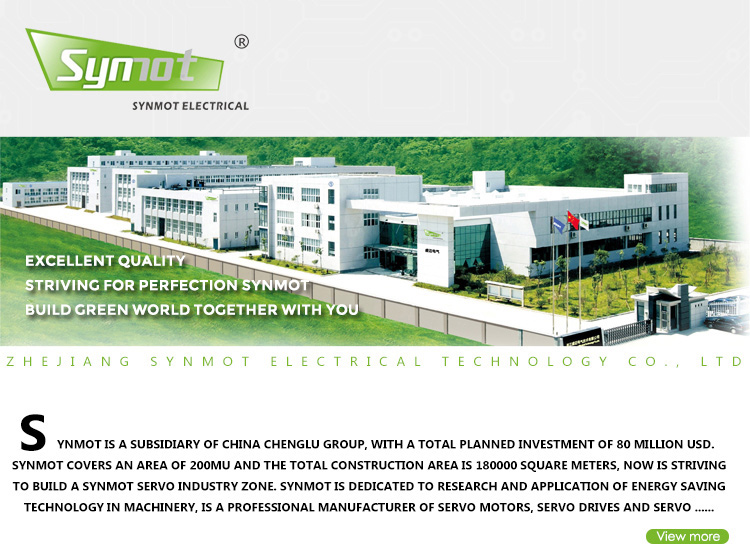
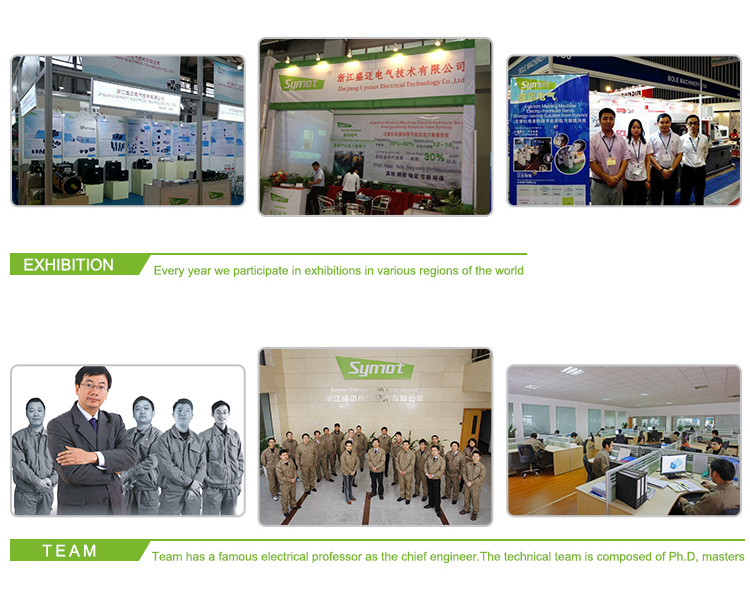
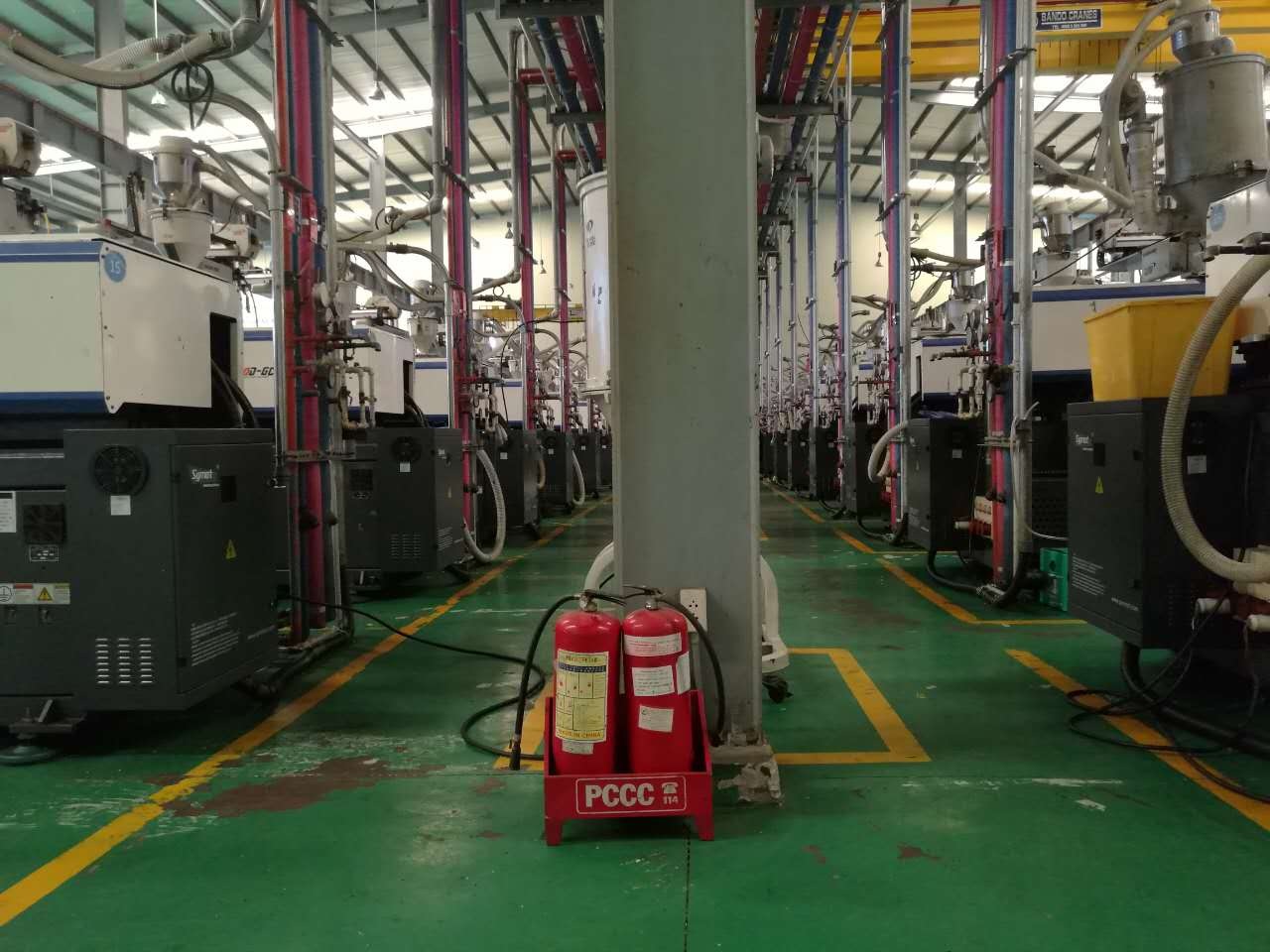
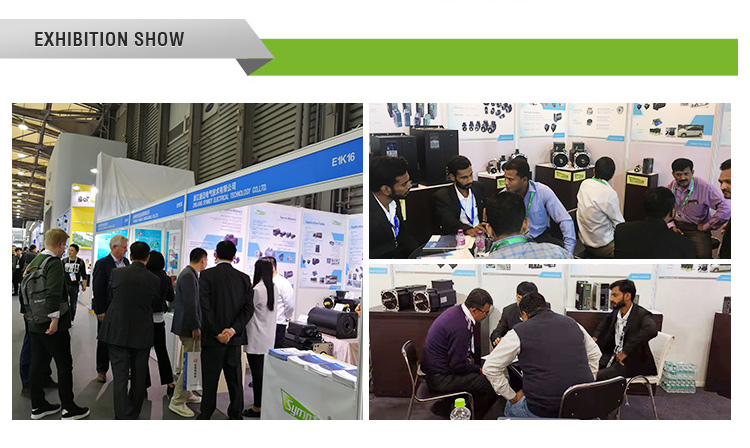

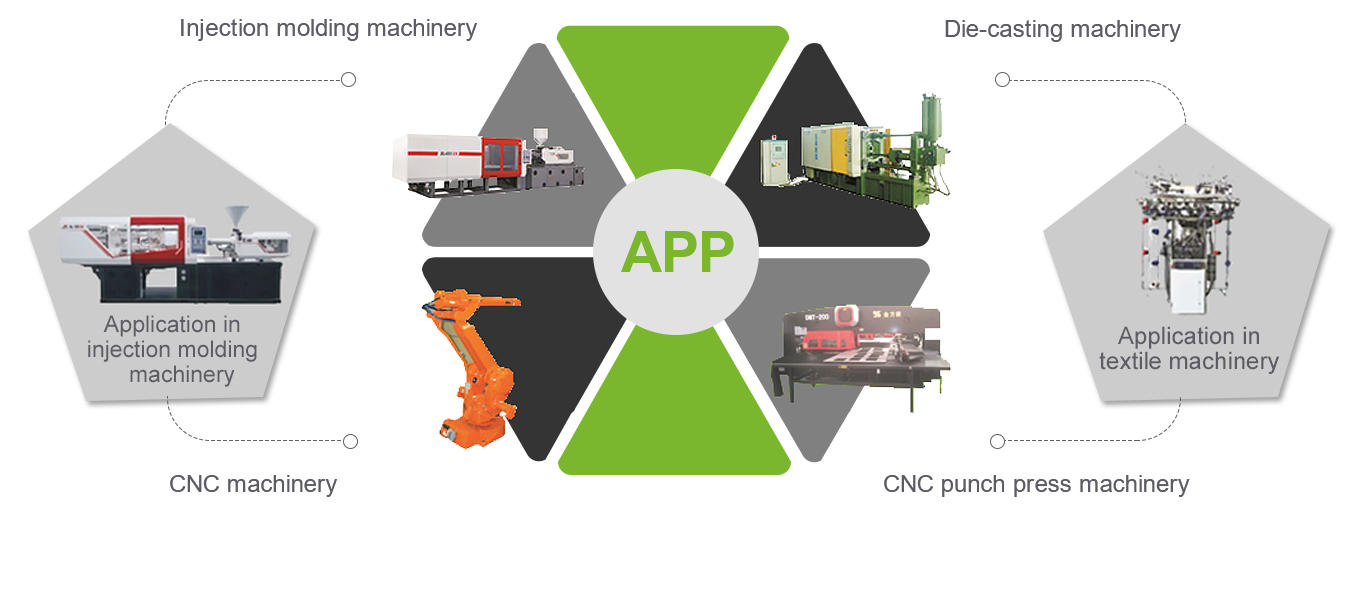



 Ms. Emily Ke
Ms. Emily Ke

